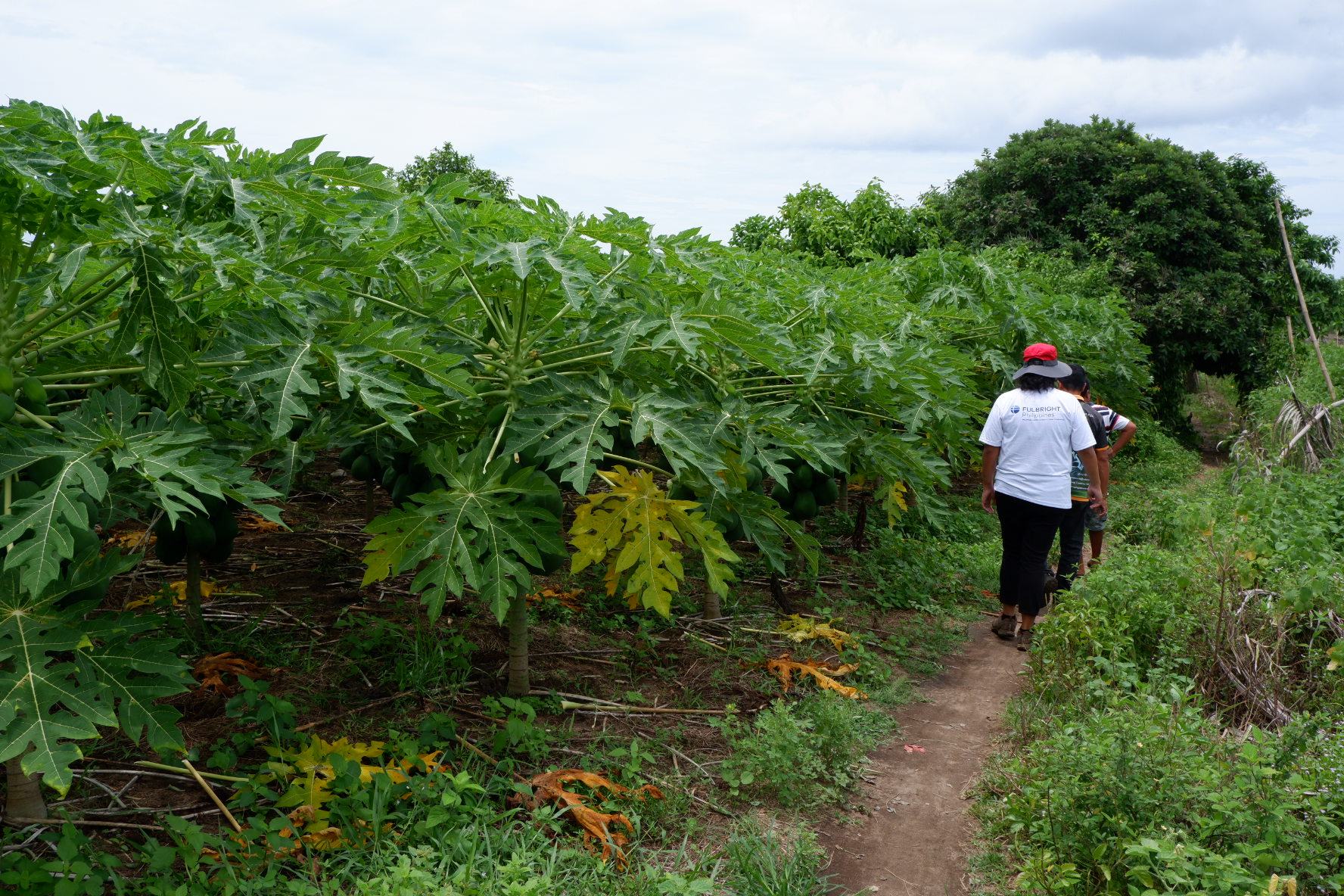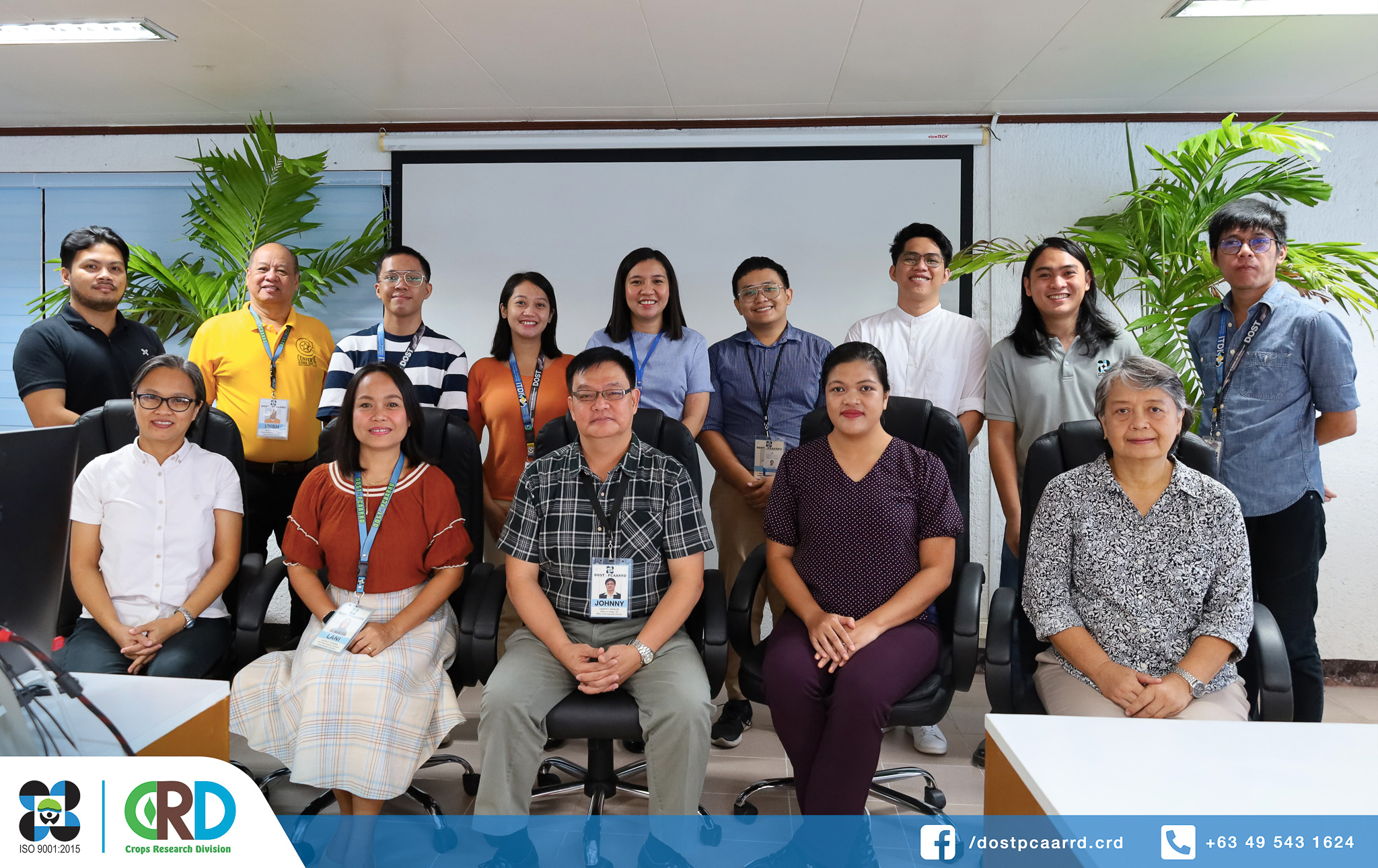A team of researchers aims to control the spread of papaya’s bacterial diseases through bacteriophage cocktails—a sustainable and environment-friendly biological control measure. Bacteriophage cocktails are mixtures of viruses that can treat plant diseases by infecting the target bacteria.
In a project review conducted by the Philippine Council for Agriculture, Aquatic and Natural Resources Research and Development of the Department of Science and Technology (DOST-PCAARRD), the team led by S&T Fellow Dr. Fides Angeli D. Zaulda of the Industrial Technology Development Institute of DOST (DOST-ITDI) presented their key accomplishments from their first year of implementing the project, “Biological Control Potential of Bacteriophage Cocktails for Bacterial Diseases of Papaya.” The said project is being implemented under the Virology and Vaccine Institute of the Philippines (VIP) program funded by DOST.

The project team inspecting a commercial papaya farm in Vinzons, Camarines Norte for papaya and soil sample collection. (Image credit: DOST-ITDI)
According to Dr. Zaulda, they intend to develop three cocktails that target Erwinia sp., Ralstonia solanacearum, and Pseudomonas syringae, which cause bacterial crown rot disease, bacterial wilt disease, and bacterial leaf spot disease, respectively.
To profile the target pathogens and bacteriophages, the team collected 22 samples from papaya shoots, trunks, leaves, and fruits and 34 soil samples from suspected disease-infected papaya plants planted in commercial and backyard farms in the Bicol region.
The team also started isolating 17 distinct isolates of the causal bacteria and processing soil samples for bacteriophage isolation.
Science and technology (S&T) Consultant Jaymee R. Encabo of the University of the Philippines Los Baños (UPLB) advised the team to further examine the diversity of the isolates, as this could potentially lead to varying susceptibility levels to the bacteriophages. Additionally, she provided suggestions on handling and processing soil samples to enhance the team's ongoing efforts.
The results of the project are expected to help papaya farmers reduce yield losses, particularly during pre-harvest, storage, and transportation.
The activity was also attended by DOST-Special Projects Division representative Simon E. Hildawa and DOST-PCAARRD representatives led by Office of the Executive Director for Research and Development Officer in Charge Dr. Juanito T. Batalon, Crops Research Division (CRD) Director Leilani D. Pelegrina, CRD Program Monitoring and Evaluation and Program-based Information System (PME-PBIS) Section Head Sharie Al-Faiha A. Lubang, and key CRD staff.

Attendees of the project review for “Biological Control Potential of Bacteriophage Cocktails for Bacterial Diseases of Papaya” from DOST, DOST-PCAARRD and DOST-ITDI. Image credit: Crops Research Division, DOST-PCAARRD
